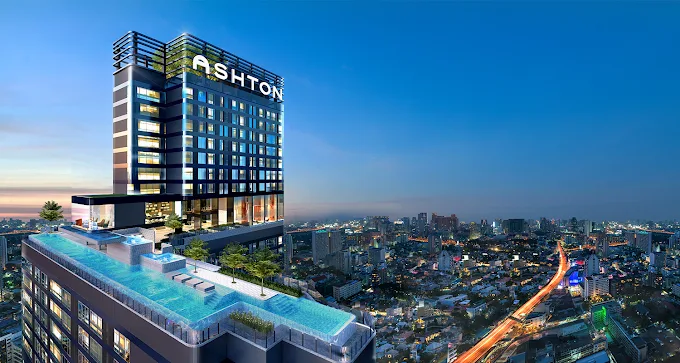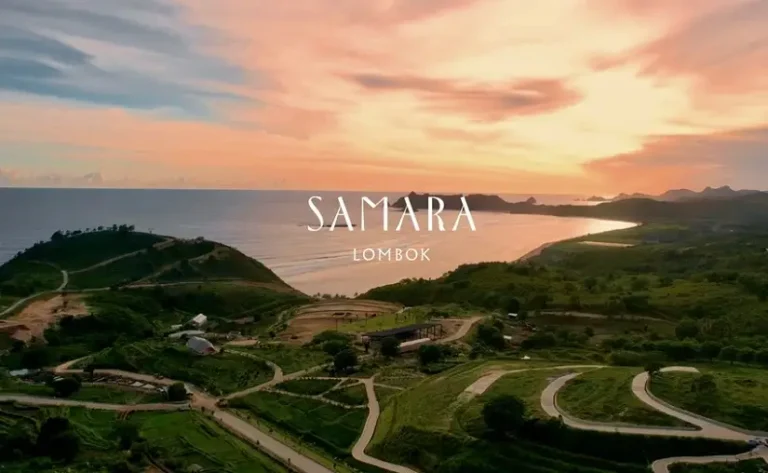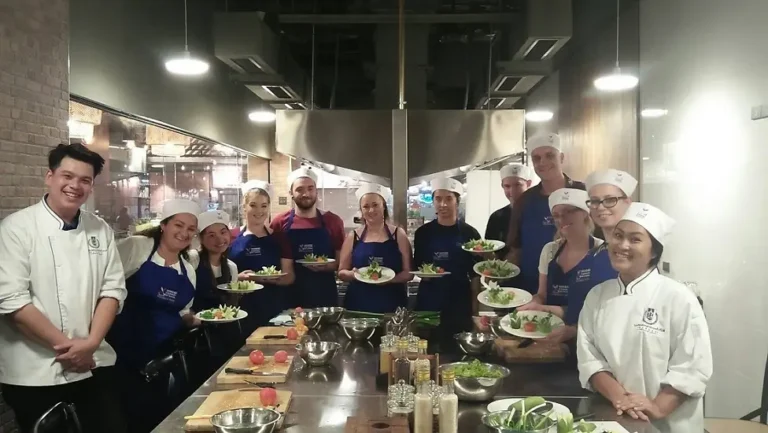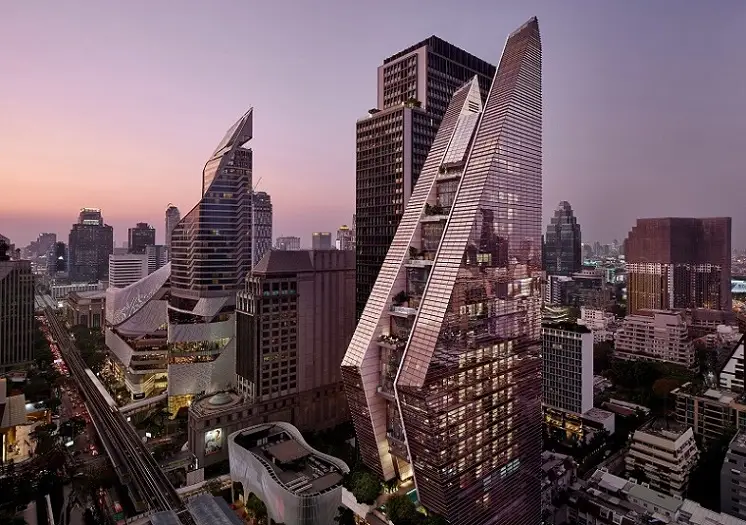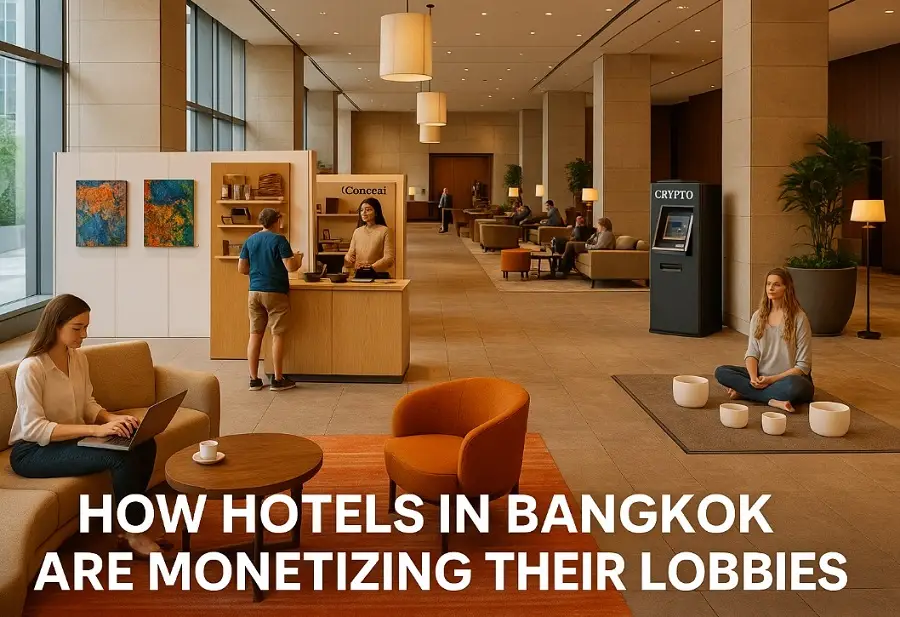
Bangkok Hotel News: Creative uses of hotel public spaces are transforming lobbies into dynamic revenue-generating zones
The Lobby Is No Longer Just a Check-In Zone
For years, the hotel lobby was treated as a functional necessity—a place for check-ins, brief meetings, or a quiet wait before departure. But in 2025, that traditional model is rapidly being dismantled. Across Thailand’s capital, hotel operators are reimagining their lobbies as vibrant, multi-use spaces designed to generate revenue, attract non-guests, and create engaging brand experiences.

Image Credit: Generated by AI (DeepSeek)
As documented by Bangkok Hotel News, the trend reflects both an economic strategy and a cultural shift. Hotels in Bangkok are recognizing that public spaces, once overlooked, can serve as commercial micro-venues. With tourism continuing to rebound and competition between properties intensifying, hotel brands are actively reconfiguring their ground floors to deliver value far beyond simple aesthetics.
From Concept Stores to Crypto Integration
One of the clearest examples of this monetization strategy is the emergence of retail pop-ups and concept stores inside lobbies. These aren’t your typical souvenir counters. Instead, hotels are partnering with local artisans, wellness startups, and lifestyle brands to offer curated goods directly to guests and visitors. These collaborations often operate on a revenue-sharing model, with hotels receiving a portion of sales in exchange for providing high-visibility, high-footfall space.
Alongside retail, some hotels have begun installing crypto ATMs and digital currency exchange kiosks to appeal to tech-savvy travelers. While not widespread yet, this innovation caters to a growing demographic of digital nomads and Web3 enthusiasts visiting Thailand, while offering hotels a new source of leasing income.
Events, Experiences, and Immersive Offerings
Hotels are also tapping into the experience economy by transforming their lobbies into event venues. Hosting temporary exhibitions, sound baths, or cultural showcases helps bring in both locals and tourists. These events not only increase brand visibility but often come with entry fees or product tie-ins—further supporting the hotel’s bottom line.
Evening activities like silent discos, live acoustic sessions, or immersive art installations are also being trialed. Since lobbies already include security and maintenance infrastructure, they require minimal additional investment to accommodate such gatherings. The added bar sales, extended foot traffic, and paid ticketing provide a lucrative return.
Enter the Creator Economy: Podcast Corners and Content Booths
With the rise of remote work and influencer travel, hotels are monetizing their space by installing small-scale recording booths or content creation corners in their lobbies. These spaces are outfitted with soundproofing and basic media equipment and can be rented by the hour to vloggers, podcasters, or social media influencers. As more travelers prioritize content production during their trips, this kind of utility-driven amenity adds appeal—and revenue.
In many cases, these booths are also used for hotel promotions or guest features, creating a mutually beneficial exchange. The hotel gains digital exposure while the creator gets a professional-looking environment without the cost of external studio rental.
Fashion Pop-Ups and Local Collaborations
Several Bangkok hotels are monetizing lobbies through collaborations with local fashion designers, small food vendors, and community artists. Weekend events featuring rotating collections of handmade clothing, vegan products, or local literature have proven popular with guests and locals alike.
These temporary installations attract new foot traffic and typically operate under licensing, leasing, or profit-sharing agreements. This model allows hotels to offer ever-changing lobby environments while diversifying revenue streams. For many properties, these community-oriented projects are also a public relations asset, building goodwill and social media buzz.
Flexible Monetization, Long-Term Value
What makes lobby monetization particularly attractive for hotel operators is its flexibility. These spaces can serve multiple purposes throughout the week: a wellness corner in the morning, a networking mixer in the evening, and a pop-up marketplace on the weekend. Unlike fixed restaurants or bars, these flexible zones can be adapted quickly based on demand and seasonality.
Moreover, many of these innovations contribute to brand differentiation. In a market saturated with standard offerings, having a unique and profitable public space helps hotels stand out—and keeps them financially agile in uncertain times.
Final Thoughts
The reinvention of the hotel lobby in Bangkok reflects a broader industry shift: hospitality is no longer just about selling rooms but about selling experiences, access, and community. Through creativity and careful planning, hotels are turning previously underused areas into profitable, versatile environments that serve guests, locals, and the business itself.
As Bangkok’s tourism sector continues to evolve, the monetized lobby may emerge as one of the most innovative and important frontiers in hospitality design and operations.
Stay updated with the latest trends in Thai travel and hotel development at Bangkok Hotel News.



